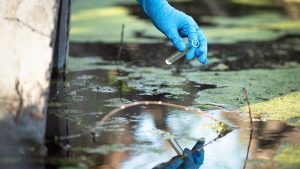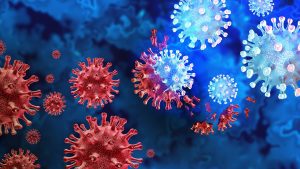
Cristina Pricop and Jean-Yves Stenuick outline the key objectives of the MEP Interest Group on AMR whose remit is centred on driving forward the policy agenda on antimicrobial resistance in the EU.
Antimicrobial resistance (AMR) endangers the health and wellbeing of millions of people across the world. Without effective antimicrobials, infections would be much harder to treat and the risk of disease, severe illness, and death would significantly increase, including during major surgery and cancer chemotherapy. This is not just a future threat, however, AMR is already an unfortunate reality affecting many Europeans, with 33,000 dying each year as a direct result of AMR. This leads to tremendous human suffering, including serious economic consequences, with AMR potentially pushing millions into poverty.
The European Parliament understands the scope of this important challenge and the need to act now. After a landmark resolution in the previous legislative term, 18 Members of the European Parliament (MEPs) from across Europe and across the political spectrum joined forces in 2019 to establish an Interest Group on AMR, recognising the key role that the European Parliament can and should play in boosting actions to tackle AMR in Europe.
The MEPs have developed an ambitious work programme centred around eight key objectives with actions ranging across human, animal, and environmental health. This programme was presented to EU Commissioner for Health Stella Kyriakides in 2020 at an event which brought together senior representatives from international organisations, national governments, industry, and civil society.
At the core of the group’s activities is an understanding that AMR spreads between humans, animals, and the environment, and that it can only be tackled effectively through a ‘One Health’ approach. The MEPs’ own diverse backgrounds ensure that policies addressing AMR integrate considerations from all these three areas of health.

The Interest Group is supported by the AMR Stakeholder Network, which brings together over 60 organisations working together to fight AMR in Europe. The network includes health professionals’ associations, patient and disease-specific groups, business representatives, research centres, local authorities, as well as environmental and animal welfare groups. It informs the work of the Interest Group by offering different perspectives on topics that require specialised knowledge yet has broad impacts on many areas of health.
Each region of Europe faces specific AMR challenges, whether it is the presence of particular resistant strains, the availability and accessibility of antimicrobial medicines, environmental pollution, antimicrobial use in food producing animals, or the capabilities of local healthcare systems to respond to these challenges. But AMR knows no borders, which means that rising AMR in one region is a concern for us all – national initiatives without EU action are insufficient and inefficient.
Since its founding, the MEP Interest Group has been working relentlessly to raise AMR higher on the EU policy agenda and is now closely following many recent policy developments that either directly target AMR or will have an impact on it. Particularly after the initial shock of the COVID-19 pandemic, there has been a realisation that Europe’s health systems need to be more resilient and better equipped to address cross border threats, of which AMR is a prime example.
The MEPs engage with their constituents on social media on this issue and actively promote and participate in European Antibiotic Awareness Day (EAAD) and World Antimicrobial Awareness Week (WAAW). They work with policymakers in the media and through international webinars and events such as the final conference of the Joint Action on Antimicrobial Resistance and Healthcare-Associated Infections (EU-JAMRAI).
In 2020, Members of the Interest Group, backed by a larger group of supporting MEPs, issued recommendations to the European Commission to address AMR in the Pharmaceutical Strategy. MEPs recommended strengthening the EU’s role in global discussions about antibiotic shortages, with a focus on making supply chains resilient to disruption. They also highlighted the need to address market failures in antibiotic research and innovation, particularly in the later stages of clinical research, while ensuring both responsible use and equitable and affordable access.
The MEPs also called on the European Commission to reduce Europe’s dependence on antibiotics through prevention activities across sectors, research into alternatives such as phage therapy, and EU-wide consumption targets to reduce inappropriate prescribing practices.
‘As Europe’s healthcare systems slowly recover from the COVID-19 pandemic, the next health crisis is already on the horizon: antimicrobial resistance. There is an urgent need to invest in and implement preventative measures now, such as ensuring proper use and disposal of antibiotics, and to bring civil society on board in the fight against AMR. It is high time for bold actions and ambitious policies across the human, animal, and environmental spectrum. These must also include a rethink of intensive animal farming systems.’
– Sarah Wiener MEP, Chair of the MEP Interest Group on AMR
Importantly, the MEPs also pointed to the lack of transparency in the pharmaceutical industry throughout the value chain and they called for binding measures to mitigate the development of resistance in the environment such as stronger manufacturing requirements, strengthened environmental risk assessments for medicines, and concentration limits for pharmaceuticals in water and soil.
The final version of the Pharmaceutical Strategy, adopted by the European Commission, includes a series of proposed actions that were broadly in line with the MEPs’ recommendations, who are now keeping a close eye on the development of the follow-up policy proposals to ensure these meet the right level of ambition.
In 2021, the MEP Interest Group on AMR held its first annual meeting on the need to move to a sustainable model of food production that ensures responsible antimicrobial use and contributes to the global response to tackling AMR.
Taking place in the run-up to application of the rules in the Regulation on Veterinary Medicinal Products entering into force, which are meant to support responsible use of medicines, the discussion addressed concerns about the readiness of EU Member States and the food production sector to implement and comply with the provisions of this landmark regulation. Some MEPs also questioned the awareness of policymakers of the drastic system changes required to implement a more sustainable model of food production in Europe.

These topics will continue to be high on the agenda of the MEP Interest Group, particularly in the context of the Commission’s list of antimicrobials to be reserved for human use.
In 2022, the MEP Interest Group on AMR will pay increased attention to the development and spread of AMR in the environment in the wake of UNEP’s new summary report on the environmental dimensions of AMR and the Global Leaders Group on AMR’s call to action on reducing antimicrobial discharges from food systems, manufacturing facilities, and human health systems into the environment.
Environmental aspects are particularly relevant policy-wise in the context of the ongoing revision of the EU general pharmaceuticals legislation, the Water Framework Directive’s lists of surface and groundwater pollutants, the Industrial Emissions Directive, and the Urban Waste Water Treatment Directive by the European Commission, with several proposals due this year.
Since its launch, the MEP Interest Group has demonstrated that the European Parliament can be a driver of efficient policies on AMR and play a key role in bridging the gap between EU citizens and policymakers. By encouraging a better understanding of AMR, including its transmission pathways, and proposing effective ‘One Health’ measures, the group is promoting increased health literacy and better protection of EU citizens’ health.
MEPs successfully called for more inclusive AMR dialogue at EU level to encourage the participation of multidisciplinary experts in the design and implementation of AMR policies. Earlier this year, the European Commission has officially proposed to partially open the participation of the EU AMR One Health Network, which brings together national representatives, to external stakeholders.
In the next few years, key policies that have the opportunity to curb the worrying trends of growing resistance in Europe will be shaped. The MEP Interest Group is now preparing the ground for the European Parliament to be the torchbearer of ambitious legislative initiatives that can prevent a nightmare scenario of an AMR pandemic from happening.
For more information on the Interest Group, please visit epha.org/amr-interest-group and follow the hashtag #MEPvsAMR on Twitter.
Cristina Pricop & Jean-Yves Stenuick
MEP Interest Group on AMR Secretariat
https://epha.org/amr-interest-group/
This article is from issue 21 of Health Europa Quarterly. Click here to get your free subscription today.

























